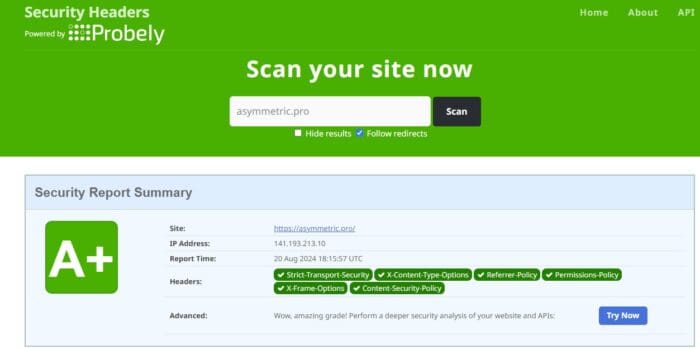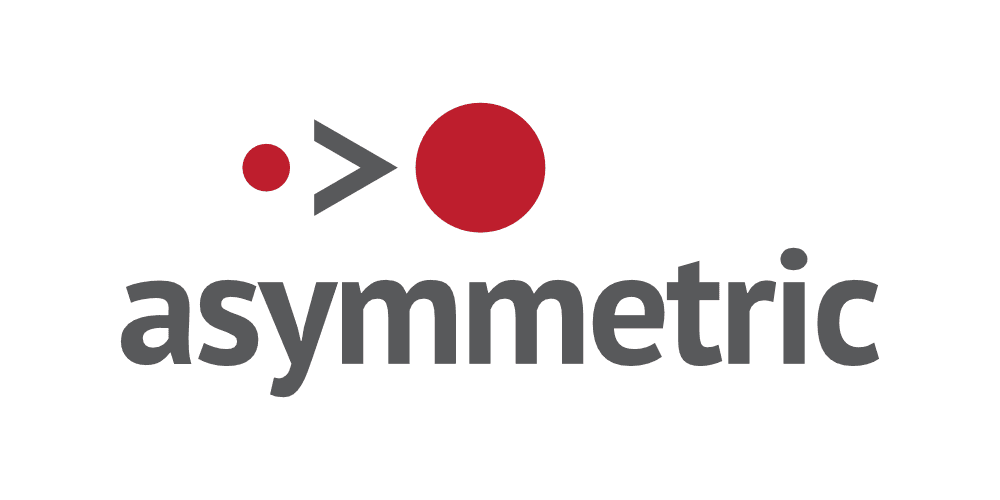One of our top quick website improvement tips is to secure your website with HTTPS, a secure version of the HTTP web protocol. However, securing your website goes beyond just enabling HTTPS. In today's digital landscape, it's essential to take a more comprehensive approach to ensure your site is safe and favored by search engines.

Why HTTPS is Essential for a Secure Site
HTTPS encrypts your website visitors’ data, providing a more secure browsing experience. It ensures that the connection between the user’s computer and your hosting provider cannot be intercepted. This significantly benefits your site visitors, especially when entering sensitive information such as usernames and passwords. Ensure that websites are legitimate before entering sensitive information, including your password.
Since October 2017, Google has warned Chrome users who navigate non-HTTPS sites that the page is insecure. This warning can scare visitors away, emphasizing the importance of HTTPS. Moreover, Google prefers HTTPS sites in its page ranking algorithms, which means your secure site is more likely to rank higher in search results, benefiting your overall and local SEO efforts.

Beyond HTTPS: Advanced Security Measures
While HTTPS is a foundational step, you can create a more secure environment by implementing additional security headers and protocols to secure your site further and boost your SEO:
- Strict-Transport-Security (HSTS): This policy tells browsers to only interact with your site using HTTPS, preventing users from being tricked into visiting an insecure version of your site. Add the Strict-Transport-Security header to your web server configuration to set this up. Be sure to include the max-age directive, which specifies how long the browser should enforce HTTPS-only connections.
- X-Content-Type-Options: This header prevents browsers from interpreting files as something other than what they are declared as, which helps avoid attacks that attempt to disguise malicious files as safe ones. Implementing this is straightforward—add the X-Content-Type-Options: nosniff header to your server configuration.
- Referrer-Policy: This controls the information sent in the Referer header when navigating away from your site. By setting a strict referrer policy, you can limit the data shared with other sites, which is beneficial for user privacy. Common values to consider include no-referrer or strict-origin-when-cross-origin.
- Permission-Policy: Previously known as Feature-Policy, this header allows you to control which browser features (like geolocation, camera, or microphone) your website can use. This enhances security by preventing unnecessary access to sensitive features. For example, to disable geolocation, you could set the policy as geolocation ‘none.’
- X-Frame-Options: This header protects your site from clickjacking attacks by controlling whether your site can be embedded in iframes on other sites. Setting X-Frame-Options: SAMEORIGIN ensures that your site can only be framed by pages from the same domain.
- Content-Security-Policy (CSP): CSP helps prevent cross-site scripting (XSS) attacks by specifying which content sources your site can load. This can be configured with a header like Content-Security-Policy: default-src ‘self’ to ensure that only resources from your domain are loaded.
Additional Security Considerations
- DNSSEC (Domain Name System Security Extensions): DNSSEC adds a layer of security to your domain name system, ensuring that users reach your actual website rather than a spoofed version. This is particularly important for preventing man-in-the-middle attacks. To enable DNSSEC, work with your domain registrar to sign your DNS records.
- Checking Your Security Setup: Once these security measures are in place, testing and verifying their implementation is crucial. As security threats evolve, adapting and changing your setup is important. Tools like Security Headers or Mozilla Observatory can help you assess how well your site is secured and identify any areas for improvement.


The Merits and Benefits of Using Cloudflare for Website Security
Cloudflare, a leading web performance and security company, offers services that can significantly enhance your website's security, performance, and reliability.
Here’s why integrating Cloudflare into your website strategy is a smart move:
1. Enhanced Security with a Global Network: Cloudflare operates one of the largest global networks, which acts as a protective shield for your website.
It mitigates Distributed Denial-of-Service (DDoS) attacks by absorbing and deflecting malicious traffic before it reaches your site.
This prevents your website from going offline and protects it from large-scale attacks that could harm your business and reputation.
2. Free SSL/TLS Encryption: Cloudflare provides free SSL/TLS encryption, essential for securing your website with HTTPS.
This ensures that data transferred between your users and your website is encrypted, protecting sensitive information such as login credentials, credit card numbers, and personal details.
By offering easy-to-implement SSL certificates, Cloudflare makes it simple to secure your website and improve your SEO ranking.
3. Web Application Firewall (WAF): Cloudflare's Web Application Firewall (WAF) is a powerful tool that helps protect your website from common vulnerabilities such as SQL injection, cross-site scripting (XSS), and other malicious attacks.
The WAF automatically updates with the latest security rules, meaning your website is constantly protected against new and emerging threats.
This level of protection is crucial for maintaining security and compliance, particularly if you handle sensitive customer data.
4. DNS Security with DNSSEC: As part of its DNS management services, Cloudflare offers DNSSEC (Domain Name System Security Extensions), which ensures that visitors reach your genuine website and not a spoofed or fraudulent version.
DNSSEC adds an extra layer of security by digitally signing your DNS records, which prevents attackers from hijacking your domain and redirecting traffic to malicious sites.
Implementing DNSSEC through Cloudflare is straightforward and helps secure one of the most critical aspects of your website’s infrastructure.
5. Content Delivery Network (CDN) for Speed and Reliability: Cloudflare’s Content Delivery Network (CDN) enhances your website’s performance by caching content across its global network of servers.
This means that when users visit your site, they receive data from the server closest to their location, reducing latency and load times.
Faster websites provide a better user experience and are favored by search engines, leading to improved SEO performance.
6. Automatic HTTPS Rewrites: Cloudflare’s Automatic HTTPS Rewrites feature automatically redirects all HTTP links on your website to HTTPS without requiring manual intervention.
This feature is particularly useful for older websites that may still have many HTTP links embedded in their content.
Ensuring all traffic is routed through HTTPS improves security and avoids mixed content issues that can negatively impact SEO.
7. Rate Limiting and Bot Management: Cloudflare’s rate limiting feature helps prevent brute-force attacks by limiting the number of requests a single IP address can make to your site in a given time frame.
This is particularly important for protecting your site's login pages and other sensitive areas.
Cloudflare’s advanced bot management tools distinguish between good bots (like search engine crawlers) and malicious bots, ensuring that your site remains accessible to legitimate traffic while blocking harmful activity.
8. Easy Integration and Management: One of Cloudflare's major advantages is its ease of integration.
Whether you’re a small business owner or a large enterprise, Cloudflare’s services can be easily set up and managed through its user-friendly dashboard.
You don’t need to be a technical expert to take advantage of Cloudflare’s security and performance features, making it accessible to businesses of all sizes.
9. Enhanced SEO with Improved Site Performance: Google and other search engines prioritize websites that offer users fast, secure, and reliable experiences.
Leveraging Cloudflare’s CDN, SSL/TLS encryption, and DNSSEC can protect your website and enhance its speed and reliability.
These improvements can lead to higher search engine rankings, increased traffic, and better user engagement, all of which contribute to your overall SEO strategy.
10. 24/7 Support and Monitoring: Cloudflare offers round-the-clock support and monitoring, ensuring your website remains secure and operational.
In the event of an issue, Cloudflare’s support team is available to help resolve problems quickly, minimize downtime, and protect your online presence.

Q&A: Key Questions About Website Security for SEO
Why is HTTPS so important for SEO?
HTTPS is vital for SEO because Google uses it as a ranking signal. Secure websites are prioritized in search results, which means that by implementing HTTPS, you can improve your site's visibility and trustworthiness. Additionally, HTTPS provides a secure connection for users, protecting their data and enhancing the overall user experience.
What does DNSSEC do, and should I enable it?
DNSSEC (Domain Name System Security Extensions) ensures that the DNS responses your website receives are authentic and haven’t been tampered with. By enabling DNSSEC, you protect your site from attacks like DNS spoofing. It’s particularly important for maintaining the integrity of your site’s domain and ensuring that visitors reach the correct web pages.
How does using a CDN like Cloudflare improve website security for SEO?
A Content Delivery Network (CDN) like Cloudflare distributes your website's content across multiple global servers, speeding up user load times and protecting your site from DDoS attacks. This improves the user experience and positively impacts your SEO, as faster, more reliable websites tend to rank higher in search results.
What are security headers, and how do they benefit my website?
Security headers, such as Strict-Transport-Security (HSTS), X-Content-Type-Options, and Content-Security-Policy, help protect your site from attacks by controlling how browsers interact. These headers can prevent common vulnerabilities like clickjacking and cross-site scripting (XSS), which secures your site and builds trust with your users and search engines.
Will implementing these security measures slow down my site?
Generally, the impact on performance is minimal, and in some cases, security measures like HTTPS and Cloudflare’s CDN can improve site speed. The benefits of enhanced security and SEO far outweigh any minor performance impacts, making these measures essential for a healthy website.
Conclusion: Fortify Your Website for Better SEO and User Experience
Securing your website is no longer just an option; it’s necessary in today’s digital landscape. By implementing HTTPS, DNSSEC, security headers, and leveraging tools like Cloudflare, you’re protecting your site from potential threats and enhancing its performance, reliability, and SEO.
A secure website fosters trust with users, ensuring they feel safe while browsing. This, in turn, reduces bounce rates and encourages engagement. This combination of security and enhanced user experience directly contributes to higher search engine rankings, driving more traffic to your site.
Incorporating these measures into your website strategy positions you ahead of the competition, ensuring your site remains robust, resilient, and ready to thrive in an increasingly security-conscious online environment. Don’t wait until it’s too late—take proactive steps to secure your site and reap the benefits of a safer, faster, and more SEO-friendly website.

Secure Your Website Today
Ready to take your website's security to the next level? Consider performing content analysis of your competitors to make sure you come out on top.
Get Expert Guidance:
If you’re unsure how to implement these security measures or need personalized advice on securing your website, we’re here to help. Whether you want to enhance your current setup or start from scratch, our team can provide the expertise you need.
Contact Us:
Reach out through our contact form to schedule a complimentary consultation. Let's discuss how we can make your website safer, more reliable, and better optimized for search engines.
Schedule a Security Audit:
Not sure where to start? Schedule a comprehensive security audit with us. We'll assess your security posture, identify vulnerabilities, and provide actionable recommendations.
Don't Wait – Protect Your Site Today!
Mark Hope
Partner, Asymmetric Marketing
📧 mark.hope@asymmetric.pro
📞 (608) 410-4450
About the author
Mark A. Hope is the co-founder and Partner at Asymmetric Marketing, an innovative agency dedicated to creating high-performance sales and marketing systems, campaigns, processes, and strategies tailored for small businesses. With extensive experience spanning various industries, Asymmetric Marketing excels in delivering customized solutions that drive growth and success. If you’re looking to implement the strategies discussed in this article or need expert guidance on enhancing your marketing efforts, Mark is here to help. Contact him at 608-410-4450 or via email at mark.hope@asymmetric.pro.

